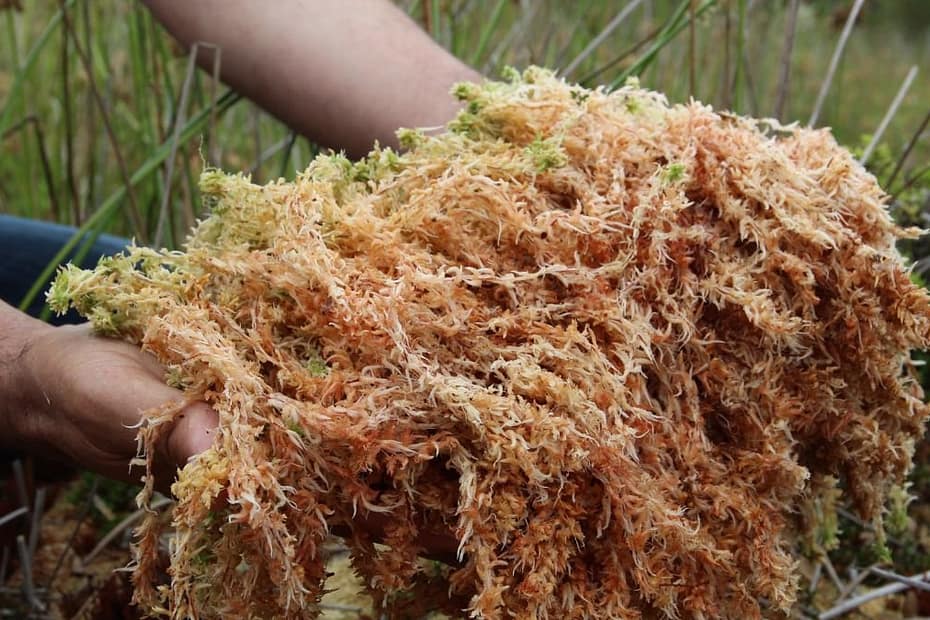Sea moss, a type of seaweed, is rich in minerals, vitamins, and antioxidants. Its potential health benefits, including immune support, thyroid health, and skin improvement, have garnered significant attention. Sea moss products, particularly in convenient forms like gummies, are increasingly sought after by health-conscious consumers.
Table of Contents
Sea Moss: Search Data
There has been a significant uptrend in keyword searches for several products related to sea moss. The search data reveals a substantial and rapidly growing interest in sea moss and its various product forms. This indicates a strong market demand for convenient and effective ways to incorporate sea moss into daily routines.
The fastest-growing search phrases are:
- Sea Moss Gummies – 22.2k monthly searches (+5,500% growth).
- Sea Moss Supplements – 12.1k monthly searches (+7,900% growth).
- Sea Moss Drops – 740 monthly searches (+7,400% growth).
- Sea Moss Powder – 50 monthly searches (+141% growth).
- Sea Moss Serum – 110 monthly searches (+1,900% growth)
- Sea Moss Products – 590 monthly searches (3,200% growth)
*Source: explodingtopics, googletrends.
Sea Moss: Market Snapshot
The health and wellness industry, especially the dietary supplement market, is experiencing significant growth. Sea moss products align with the increasing consumer preference for natural and plant-based solutions. The potential for innovation and differentiation within this market is high.
Sea Moss: Market Overview
The global sea moss market is experiencing significant growth, driven by increasing health consciousness and the rising popularity of plant-based diets.
The sea moss market was valued at approximately USD 2.58 billion in 2023 and is projected to reach about USD 2.99 billion by 2030, growing at a compound annual growth rate (CAGR) of 2.1% from 2024 to 2030.
*Source: Grand View Research, GII Research, Strategy MRC.
Sea Moss: Regional Insights
- North America: Expected to hold the largest market share, driven by a growing interest in health and wellness products. The U.S. market has seen a surge in suppliers and retailers offering diverse sea moss products.
- Asia Pacific: This region is projected to have the highest CAGR, attributed to traditional culinary uses of sea moss and a focus on sustainable and eco-friendly products.
Sea Moss Market: Key Drivers
The growing popularity behind sea moss and other related products are driven by multiple factors, such as:
- Health Benefits: Sea moss is rich in nutrients, including iodine, potassium, magnesium, and vitamins A, C, and E, making it popular for its potential health benefits like immune support and digestive health.
- Plant-Based Trends: The shift towards vegan and vegetarian diets has increased demand for nutrient-rich, plant-based ingredients, with sea moss serving as a valuable alternative to animal-derived products.
Sea Moss: Product Segments
The market includes various forms of sea moss products such as raw sea moss, sea moss gel, capsules, and powders. The capsules segment is expected to dominate due to their convenience and health benefits.
Sea Moss: Market Challenges
- Sustainability Concerns: Overharvesting and unregulated practices pose risks to marine ecosystems, prompting calls for sustainable cultivation methods to ensure the longevity of sea moss resources.
- Quality Control: Variations in sourcing and processing can lead to quality issues, making it essential for consumers to choose reputable brands.
Where to Find Sea Moss Products & Ingredients?
- Sea Moss Sourcing: Purchase high-quality sea moss from reputable suppliers. Consider sourcing organic or sustainably harvested sea moss to appeal to eco-conscious consumers.
- Manufacturing: Partner with a food manufacturer experienced in gummy production or explore options for small-scale production.
- Additional Ingredients: Source vitamins, minerals, and natural sweeteners to enhance product formulations.
Sea Moss Industry: Recent Developments
New product launches are frequent in the market. For instance, companies like Everboost and Mos x Daily have recently introduced innovative sea moss gel products in various flavors, catering to the growing consumer interest in functional foods.
Major Players in the Sea Moss Market (Global)
These companies are actively involved in the production, marketing and distribution of various sea moss products such as raw sea moss, sea moss gel, capsules, and powders to meet the growing demand for nutrient-rich, plant-based ingredients across different applications including food & beverages, dietary supplements, cosmetics and pharmaceuticals.
- Bloom Health
- Veganlifemoss
- Glasswing organics
- Transformation Factory
- Nature’s Vision
- Sea Moss Gel Co
- Red’s Kitchen Sink
- Starwest Botanicals
- Nutriflair
- Power By Naturals
- The Sea Moss Company
- Island Seamoss
- Irish Sea Moss
- Moss Man
- Irish Moss Ltd
- Ocean Harvest
Sea Moss: Business Ideas
The market is wide open and there are many opportunities to get into the sea moss industry. Here are a few sea moss business ideas:
Sea Moss Micro Hustles
- Explore various content formats (blog posts, videos, podcasts, social media) to attract and engage the target audience. Develop effective content marketing strategies to drive traffic and generate leads. Explore monetization options such as affiliate marketing, sponsored content, digital product creation (e-books, online courses), and one-on-one consultations.
- Optimize product listings on platforms like Etsy, Amazon, or eBay with high-quality product images, compelling descriptions, and competitive pricing. Utilize SEO and paid advertising to increase visibility. Explore opportunities for cross-selling and upselling related products.
- Develop a strong social media presence on platforms like Instagram, Facebook, and TikTok. Create engaging content, run contests and giveaways, and collaborate with influencers. Explore social commerce options to facilitate direct sales.
Sea Moss Side Hustles
- Option 1: Wholesale Partnerships
Develop a comprehensive wholesale strategy, including product packaging, pricing, sales materials, and order fulfillment processes. Build strong relationships with potential wholesale partners and provide excellent customer service.
2. Option 2: Subscription Boxes
Curate unique and valuable subscription box themes that resonate with the target audience. Implement effective customer retention strategies, such as personalized recommendations and exclusive offers. Explore partnerships with complementary brands for box inclusions.
3. Option 3: Private Label
Research private label manufacturing options and identify potential target markets for white-label sea moss products. Develop strong branding and packaging to differentiate the product.
Sea Moss Small Business Ventures
- Option 1: eCommerce
Explore international market opportunities, implement multi-channel selling strategies, and optimize website conversion rates. Invest in customer relationship management (CRM) and email marketing to enhance customer engagement.
2. Option 2: Retail Expansion
Consider opening physical retail stores or partnering with existing retailers to increase brand visibility and sales. Develop effective store merchandizing and in-store marketing strategies.
3. Option 3: Product Line Expansion
Conduct market research to identify new product opportunities within the sea moss category. Develop product prototypes, conduct consumer testing, and refine product formulations. Explore opportunities for product diversification.
Sea Moss Business: Financial Snapshot
- Micro Hustles: Low to no upfront costs. Revenue generated through product sales.
- Side Hustles: Moderate upfront costs for product development, packaging, and distribution. Potential for higher revenue and profit margins.
- Business Ventures: Significant upfront investment in branding, marketing, and operations. Potential for substantial growth and profitability.
Sea Moss Business: Legal and Regulatory Considerations
- Food Safety Regulations: Understanding and complying with relevant food safety standards and labeling requirements.
- Business Structure: Choosing the appropriate legal structure for your business (sole proprietorship, LLC, corporation).
- Intellectual Property Protection: Protecting your brand and product formulations through trademarks, copyrights, or patents.
If you’re interested in discovering more niche business ideas, or need a full-fledged report, send an email to bishal@writeers.com, connect with me via LinkedIn, drop a message via my website.

